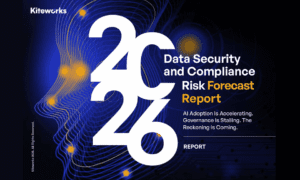In today’s digital world, keeping our personal information safe online is a big deal. We use the internet for nearly everything shopping, working, chatting with friends, and learning. And while technology has brought us lots of amazing benefits, it has also raised important questions about our privacy and the safety of our data.
Silicon Valley, the famous tech area in California, is home to companies like Google, Facebook, Apple, and Amazon. These companies have made it easy to connect with others, find what we need, and enjoy personalized services. But this level of convenience often comes at a cost: our personal information. This article explains the ways Silicon Valley has changed our online privacy and data security, looking at the good, the bad, and the challenges that come with rapid tech growth.
Silicon Valley’s Rise and Its Impact on Data
Silicon Valley started with a few small tech companies that have now grown into huge businesses with global influence. Companies here have changed how we use the internet, offering tools that make life easier. But every time we log in, post a picture, search for something, or shop online, tech companies are collecting information about us our interests, preferences, and habits. This data helps them show us ads that match our interests, suggest products, or help us find friends.
While these features are useful, many people wonder: who sees this data, and what is it really being used for?
How Tech Companies Use Your Data
The tech companies in Silicon Valley depend heavily on user data to run their businesses. Here’s how they commonly use it:
Personalized Ads: Platforms like Facebook and Google track your online activities to show ads they think you’ll like. For instance, if you often search for recipes, you might start seeing ads for cooking tools or meal services.
Suggestions You Might Like: Apps like Netflix and Spotify analyze what you’ve watched or listened to before and use this information to suggest similar movies or songs.
Improving Products: Data helps companies make their products better. For example, they can identify glitches, figure out which features are popular, and learn what users like most.
These features can be very helpful, but they mean that our personal data is always being gathered and analyzed. This makes some people uneasy, especially if they don’t know exactly what is being collected and how it’s being used.
Privacy Issues with Big Data
As Silicon Valley collects more data, people have raised concerns about their privacy. Here are some of the main worries:
Sharing Data: Some companies share user data with others for advertising. This has led people to question where their data ends up and who else can see it.
Tracking: Many companies track where we go, what we search, and sometimes even our conversations. This constant monitoring can make people feel like they’re being watched.
Data Breaches: The more data collected, the bigger the risk that it could fall into the wrong hands. Over the years, there have been major data leaks that exposed sensitive information, leading to problems like identity theft and fraud.
Lack of Transparency: Privacy policies are often long and confusing, making it hard for people to understand what they’re agreeing to. This leaves many users feeling like they’re not in control of their own information.
How Tech Companies Work to Protect Data
While privacy concerns are real, many Silicon Valley companies also focus on data security. They spend a lot of money on tools to keep user data safe. Here’s what they’re doing:
Encryption: This technology scrambles data so that only the intended person can read it. Apps like WhatsApp use end-to-end encryption to keep messages private.
AI for Security: Companies use artificial intelligence (AI) to spot and block suspicious activities like hacking attempts. This helps keep our data safe.
Educating Users: Companies like Google and Apple are helping users understand how to protect themselves by promoting features like two-factor authentication.
Privacy Controls: More companies are offering privacy settings so users can control who sees their data and how it’s used.
New Rules for Better Privacy
Governments and the public are now pushing for more data privacy. In Europe, laws like the GDPR make companies ask for permission before collecting data and allow people to delete their data. In California, the CCPA law gives people more control over their data, forcing companies to be more open about how they use it.
People have become more aware of their rights, and this has pressured companies to prioritize privacy. For example, Apple has made privacy a core feature, letting users control which apps can track them.
Finding a Balance Between Privacy and Innovation
Silicon Valley faces a big challenge: to keep creating innovative, useful services while respecting people’s privacy. Some companies, like Apple, are making privacy a priority by limiting data tracking. But for others that rely heavily on ad revenue, privacy can be harder to achieve.
Conclusion
Silicon Valley has given us incredible tools that make life easier and more connected, but it has also brought up new concerns about privacy. Today, personal data is valuable sometimes even more valuable than our physical belongings! As technology grows, it’s essential for both users and companies to stay informed and cautious.
Moving forward, everyone has a role to play: users need to stay aware of how their data is being used, and companies must prioritize transparency and data security. The choices made today will shape the future of privacy and data security in the digital world.



































